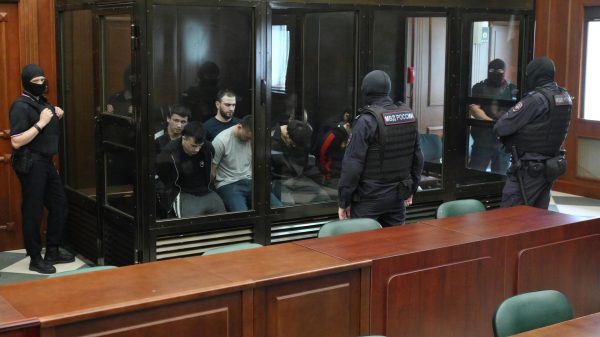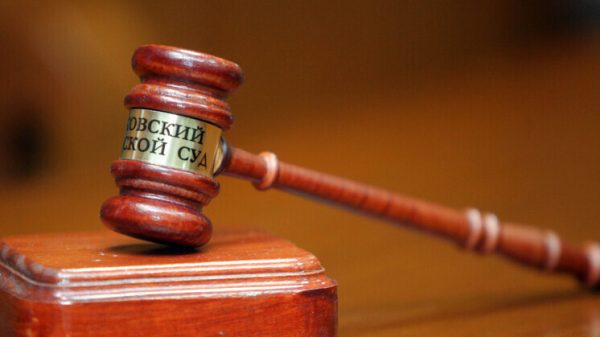An area of Brentwood in Essex is the latest region to be subjected to surge testing after a single case of the variant discovered in South Africa was detected, the UK government has said.
A total of 235 confirmed or probable cases of the variant, which appears to be less susceptible to vaccines, have been identified, according to figures published on 18 February.
Quick guide Vaccines: how effective is each one and how many has the UK ordered?
Show
Hide
Pfizer/BioNTech
Country US/Germany
Efficacy 95% a week after the second shot. Pfizer says it is only 52% after the first dose but the UK’s Joint Committee on Vaccination and Immunisation (JCVI) says this may rise to 90% after 21 days.
The UK has ordered 40m doses.
Doses Clinical trials involved two doses 21 days apart. The UK is stretching this to 12 weeks.
Oxford/AstraZeneca
Country UK
Efficacy 70.4% 14 days after receiving the second dose. May have up to 90% efficacy when given as a half dose followed by a full dose. No severe disease or hospitalisations in anyone who received the vaccine. There have been concerns it is less effective against the South African variant of the coronavirus.
The UK has ordered 100m doses.
Doses Two, four to 12 weeks apart
Moderna
Country US
Efficacy Phase 3 trial results suggest 94.1%.
The UK has ordered 17m doses, to be delivered in March or April
Doses Two, 28 days apart
Novavax
Country US
Efficacy Phase 3 trials suggest 89.3%.
60m doses ordered by the UK, with distribution expected principally in the second half of the year
Doses Two
Janssen (part of Johnson & Johnson)
Country US
Efficacy 72% in preventing mild to moderate cases in US trials but 66% efficacy observed in international trials. 85% efficacy against severe illness, and 100% protection against hospitalisation and death.
30m doses ordered by the UK
Doses: One, making it unique among Covid vaccines with phase 3 results so far
Photograph: Stéphane Mahé/X02520
Was this helpful?
Thank you for your feedback.
Routine and surge testing have confirmed 139 cases in England, 16 in Scotland and 12 in Wales, with a further 68 cases considered “genomically probable”.
Scientists are wary of the variant – known as B1351 or 501YV2 – as it could sabotage efforts to contain the epidemic with vaccines should it spread more widely. This latest case was found in the CM13 postcode in Brentwood.
Earlier this month, South Africa paused its rollout of the Oxford/AstraZeneca vaccine after the results from a small, still to be peer-reviewed trial in young people suggested the vaccine prevented only 10% of mild or moderate disease caused by the variant.
Separately, a laboratory study published in a prestigious medical journal last week suggests that the variant may reduce antibody protection from the Pfizer/BioNTech vaccine by two-thirds, although it is not clear if the shot will be effective against the mutation, the companies have said.
Moderna, another Covid-19 vaccine maker, said the actual efficacy of its vaccine against the South African variant was yet to be determined. Previously, the company had stated it believed the vaccine would work against the variant.
Makers of some still-to-be-authorised vaccines have also found that the variant have taken a toll on vaccine efficacy.
The Novavax vaccine, which employs similar technology to the Oxford/AstraZeneca shot, demonstrated an efficacy of 89% in UK trials, which dipped to 60% in South Africa where 92% of infections were caused by the variant. Meanwhile, the Johnson & Johnson vaccine showed 72% efficacy in a US trial, but only 57% in South Africa. However, both still protected against severe disease, hospitalisation and death.
Public health officials have stepped up testing in parts of the UK in a bid to halt the community spread of the variant and others that are causing concern because of the mutations they carry. The mutation, E484K, (nicknamed Eeek), has been seen in the variant discovered in South African and another variant detected first in Brazil. Scientists suspect the mutation helps the virus evade the immunity conferred by past infection or vaccination.
The variant discovered in South Africa also carries a mutation, N501Y (dubbed Nelly) associated with increased infectiousness. However, this is not the only variant with both the N501Y and E484K mutations in the UK – the variant discovered in Bristol also has both these mutations, said Paul Hunter, a professor in medicine at the University of East Anglia.
“So as we come out of lockdown, the South African variant or the Bristol variant are likely to become dominant even with high vaccine coverage,” Hunter said.
“However, that does not mean that these escape mutations will necessarily undo all the value of vaccination and there is reasonable evidence that current vaccines should still reduce the risk of infection from the South African variant and perhaps more importantly the risk of more severe disease and hospitalisation, even in those people who have acquired the infection.”
What is worrying is whether additional mutations will accumulate on top of the mutations already known, he added.
Boris Johnson is gearing up for a keenly anticipated statement to the House of Commons on Monday, in which the prime minister is expected to take a cautious approach to lifting restrictions but confirm schools will reopen from 8 March and allow some family outdoor gathering before Easter.
As of Saturday, about 17.6 million adults in the UK had received their first dose of the vaccine, while more than 615,000 people had received their second shot. Plans to offer the first dose to all adults over 50 has been brought forward two weeks to 15 April. On Sunday, the health secretary, Matt Hancock, also set a target of offering a vaccine to all adults by the end of July.
On Sunday the official total for deaths that occurred within 28 days of a positive coronavirus test rose by 215, while another 9,834 cases were recorded.























































Свежие комментарии